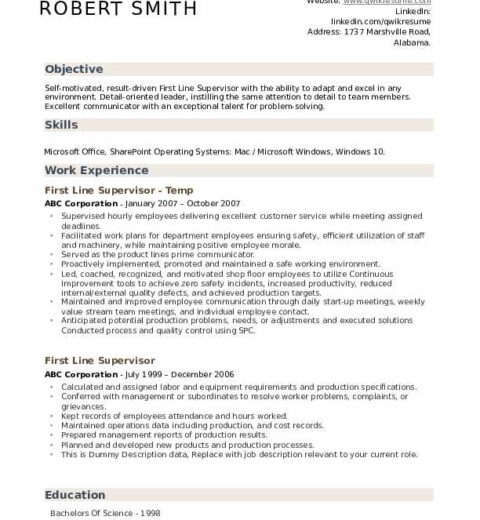In the rapidly evolving job market of 2025, possessing a robust skill set has become paramount for job seekers across diverse fields. The transformation of industries driven by technological advancements, shifting consumer preferences, and global connectivity necessitates a focus on specific skills that can distinguish candidates from their peers. Below are 25 top skills that should be prominently featured on a resume to enhance employability and showcase adaptability.
1. Adaptability
As workplaces increasingly embrace change, the ability to adapt is crucial. Employers seek individuals who can navigate shifting environments and pivot strategies as needed. Adaptability demonstrates resilience and openness to new ideas, making it a valuable asset.
2. Digital Literacy
With the world becoming more digitized, a comprehensive understanding of digital tools and platforms is essential. Digital literacy extends beyond basic computer skills; it includes proficiency in software applications, data analysis, and emerging technologies that can streamline operations.
3. Data Analysis
As organizations collect vast amounts of data, the capacity to interpret and analyze this information has grown in significance. Data-driven decision-making promotes efficiency and strategic planning. Candidates who can illustrate their analytical skills are highly sought after.
4. Emotional Intelligence
Emotional intelligence (EI) involves recognizing and managing one’s emotions, as well as empathizing with others. In 2025, EI remains a critical competency for fostering collaborative work environments and effective leadership. It enables professionals to navigate interpersonal dynamics and build strong relationships.
5. Team Collaboration
As projects increasingly involve cross-functional teams, the ability to collaborate effectively is indispensable. Demonstrating teamwork skills indicates a candidate’s capability to work harmoniously with diverse personalities and perspectives, contributing to project success.
6. Problem Solving
Employers treasure individuals who can identify challenges and develop innovative solutions. Problem-solving skills showcase critical thinking and resourcefulness, proving that a candidate can overcome obstacles and drive progress.
7. Project Management
As tasks become more complex, organizations require professionals adept at overseeing projects from inception to completion. Project management skills highlight an individual’s capability to strategize, coordinate efforts, and ensure timely deliverables, enhancing organizational efficiency.
8. Communication Skills
In any profession, the ability to convey ideas clearly and effectively is paramount. Strong communication skills facilitate better collaboration and reduce misunderstandings, making it a cornerstone of successful workplace interactions. Both verbal and written communication are critical components of this skill.
9. Critical Thinking
Critical thinking transcends mere problem-solving; it involves analyzing situations, evaluating evidence, and forming reasoned conclusions. This competency encourages informed decision-making and is a hallmark of effective leadership.
10. Leadership
Leadership skills are not confined to those in managerial positions. Demonstrating the ability to mentor, guide, and inspire others is essential in any role. Organizations value individuals who can motivate teams towards shared goals and foster a positive workplace culture.
11. Technical Proficiency
Depending on the industry, technical proficiency can take various forms, from coding languages in tech roles to specialized software in design. Employers appreciate candidates who possess skills relevant to their field of expertise, illustrating a commitment to professional development.
12. Global Mindset
In an interconnected world, having a global mindset is increasingly important. This skill encompasses cultural awareness, sensitivity, and an appreciation for diversity, enabling professionals to operate effectively in multinational settings.
13. Creative Thinking
Creativity is not limited to traditional artistic endeavors; it is vital for innovation and brainstorming new ideas. Creative thinkers can propose novel solutions and drive initiatives that set organizations apart from their competitors.
14. Customer Orientation
Businesses thrive on customer satisfaction, making customer orientation a pivotal skill. Understanding customer needs and delivering exceptional service can enhance brand loyalty and drive sales, particularly in service-oriented industries.
15. Negotiation Skills
The ability to negotiate effectively is invaluable in securing favorable outcomes, whether in sales, contracts, or team dynamics. Proficient negotiators can navigate conflicts and achieve mutually beneficial agreements.
16. Networking
Networking skills enable professionals to build relationships and leverage connections for career advancement. The art of networking involves not only meeting new people but also forging lasting partnerships that can lead to opportunities.
17. Initiative
Employers favor candidates who take the initiative to go beyond their job descriptions. Demonstrating a proactive approach to challenges signifies motivation and a commitment to continuous improvement.
18. Time Management
Effective time management ensures that tasks are completed efficiently and deadlines are met. This skill illustrates an individual’s ability to prioritize and balance multiple responsibilities, fostering productivity in the workplace.
19. Conflict Resolution
Workplace conflicts are inevitable; thus, possessing conflict resolution skills is crucial. Professionals adept in this area can mediate disputes and ensure that issues are resolved amicably, promoting a harmonious work environment.
20. Attention to Detail
Attention to detail underscores the importance of accuracy and thoroughness in any task. This skill reduces the likelihood of errors and demonstrates a commitment to quality, essential in fields such as finance, law, and healthcare.
21. Resilience
Resilience refers to the capacity to recover from setbacks and maintain focus on goals. In today’s fast-paced world, the ability to bounce back from adversity is a characteristic that employers highly regard.
22. Active Listening
Active listening is an often-overlooked skill that fosters effective communication. Professionals who practice active listening are better equipped to understand and address the needs and concerns of colleagues and clients.
23. Research Skills
The ability to conduct thorough research enables professionals to stay informed and make evidence-based decisions. This skill is essential in roles that require market analysis, policy development, or academic inquiry.
24. Sustainability Awareness
As sustainability becomes a priority for many organizations, possessing knowledge of environmentally friendly practices is increasingly valuable. Candidates who understand and advocate for sustainability demonstrate foresight and social responsibility.
25. Self-Motivation
Self-motivation differentiates exceptional candidates from the rest. This trait illustrates an individual’s ability to take ownership of their professional development and drive their own success without external prompting.
In conclusion, equipping oneself with these 25 top skills is imperative for thriving in the job market of 2025. Cultivating a diverse skill set not only enhances employability but also prepares individuals to contribute meaningfully to their organizations. As industries continue to evolve, those who emphasize adaptability, emotional intelligence, and technical proficiency will undoubtedly stand out amidst the competition.




